QuestionHello,
I've had my goldfish for almost 5 years. Recently, I noticed what looked like a fungus around the mouth area so I began fungus treatment. It continued to get worse, and now looks like his mouth has almost completely sealed shut. There must be a tiny unseen hole because only small flakes of food are able to be eaten. I called several pet stores and only one gave a treatment option of fishbiotics. I treated my fish for 5 days per the instructions and no change. I am worried my fish eventually will be unable to eat.
AnswerHi Lomdsay!
Despite the name, mouth fungus is actually a bacteria infection. Antibiotics that act against gram-negative bacteria, such as kanamycin, should work well against mouth fungus. Antibacterial medications such as phenoxyethanol (at 100 mg/l, for 7 days) and nifurpirinol (also known as furanace or nitrofurazone, 0.2 mg/l, for up to 5 days) have also been used with success. Note that some of these medications, including nifurpirinol, can affect the filter bacteria.
Because it can be difficult to distinguish mouth fungus from both true fungal infections and bacterial finrot, many proprietary medications formulated to treat mouth fungus also treat finrot and fungus as well. Needless to say, success in the long term depends upon the fish being properly maintained, so some review of water quality, water chemistry, diet, and social behavior will very likely be necessary.
Tea-tree oil from Melaleuca tree species has been used to prevent bacterial infections of fish with some degree of success. If a fish has been damaged or nipped, isolating that fish from the source of trouble and then treating with tea-tree oil may be helpful in preventing both mouth fungus and finrot, as well as true fungal infections.
Salt (sodium chloride) is not particularly useful in treating mouth fungus, though it may have some value in preventing bacterial infections generally when used at a dose of up to 1 oz per US gallon. Note however that salt concentrations likely to prevent bacterial infections will be too high for most freshwater fish, making salt only useful in situations involving truly salt-tolerant fish, such as guppies and mollies.
If your fish is not able to eat, I advise you to prepare some small pellets instead of flakes, as the round shape should be easier to enter the small whole in the infected mouth.
Hope this helps!
-Sam

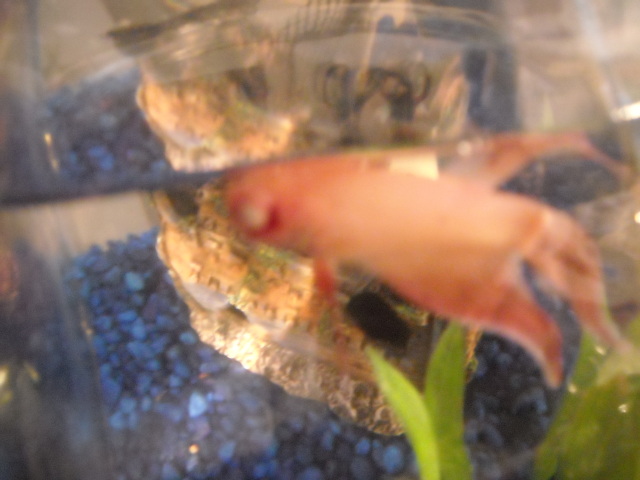 Popeye Betta
Question
popeye
My betta fish started showing si
Popeye Betta
Question
popeye
My betta fish started showing si
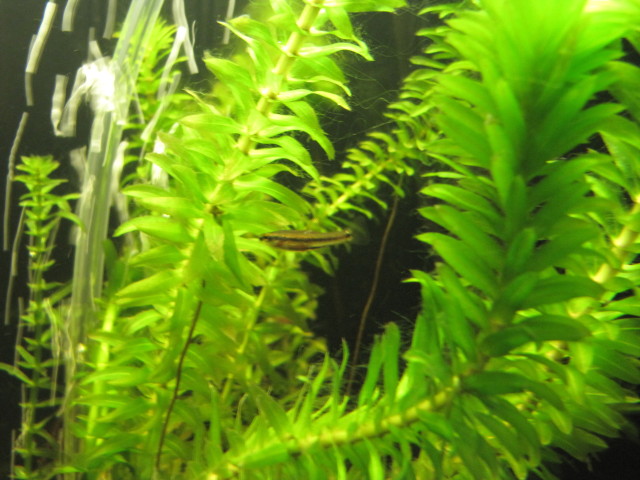 identify a fish?
Questionid baby fish
QUESTION: Hi Matt, Would yo
identify a fish?
Questionid baby fish
QUESTION: Hi Matt, Would yo
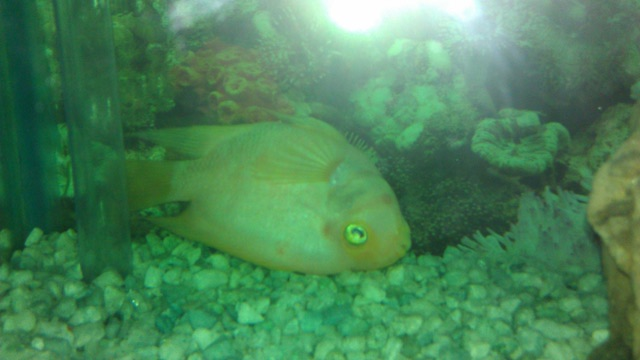 my 3 year old parrot stays upside down in the bottom of the tank.
Question
parrot laying upside d
Hello,
My parro
my 3 year old parrot stays upside down in the bottom of the tank.
Question
parrot laying upside d
Hello,
My parro
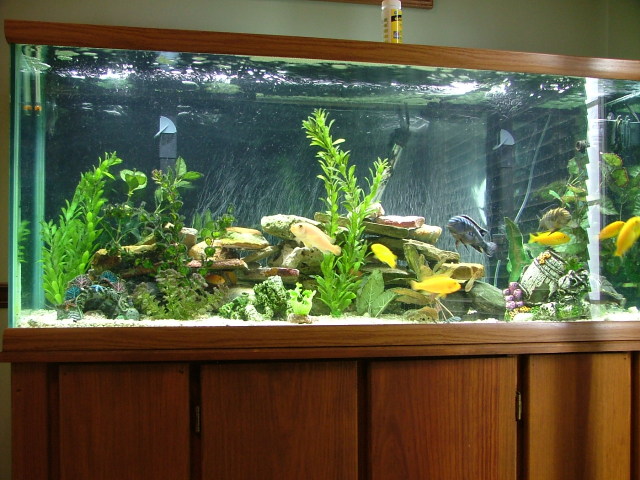 African Cichlids just moved tank and am paranoid!
Question
75 gal malawi tank
hello,
Ive kept fish for ye
African Cichlids just moved tank and am paranoid!
Question
75 gal malawi tank
hello,
Ive kept fish for ye
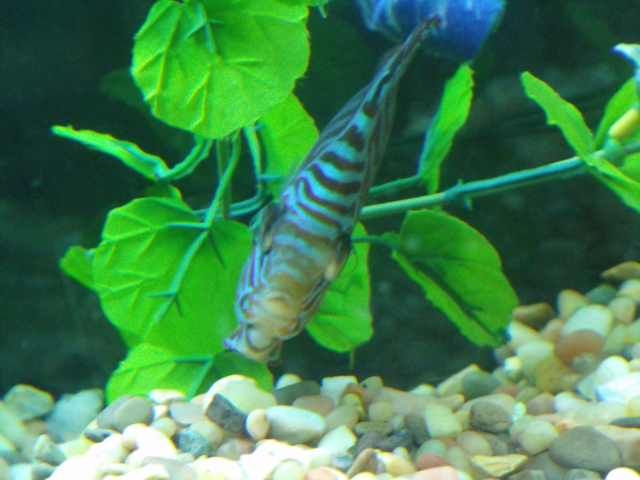 Discus with popeye not eating
Questionpopeye, possible hole
QUESTION: I was d
Discus with popeye not eating
Questionpopeye, possible hole
QUESTION: I was d